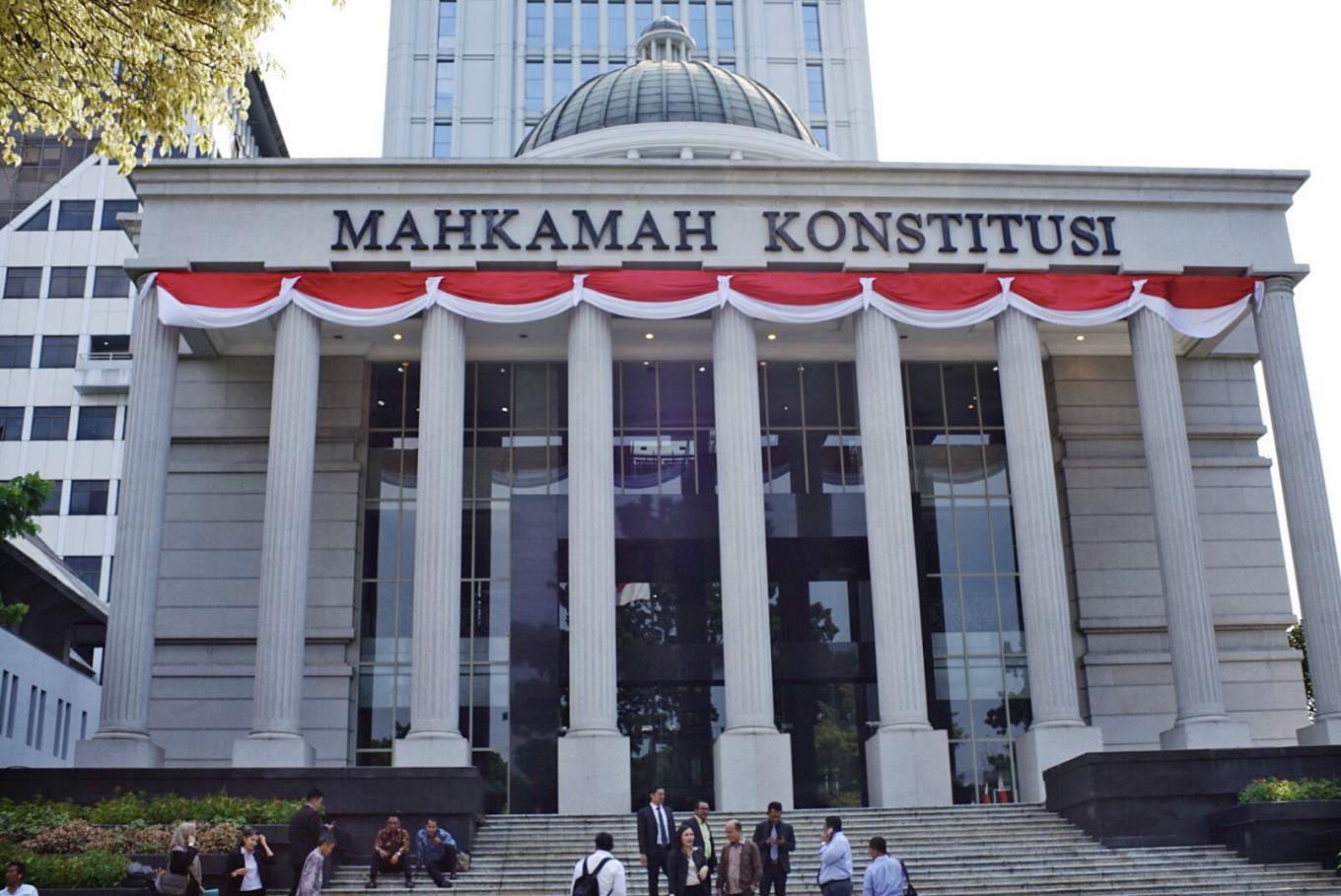Popular Reads
Top Results
Can't find what you're looking for?
View all search resultsPopular Reads
Top Results
Can't find what you're looking for?
View all search resultsGroups raise concern over 'conflict of interest' in Constitutional Court Law revision
The House Commission III overseeing legal affairs began deliberating the bill on Monday.
Change text size
Gift Premium Articles
to Anyone
A
coalition of civil society groups has called on the House of Representatives to repeal problematic articles in the revision to the Constitutional Court (MK) Law, alleging they contain conflicts of interest that can harm the Court’s impartiality.
Among the coalition members are West Sumatra's Andalas University's Constitution Study Center (PUSaKO), Indonesia Center for Law and Policy Studies (PSHK), Indonesia Corruption Watch (ICW) and judicial watchdog KoDe Inisiatif.
"The House and the government must drop the article that increases the minimum age of justices to 60 years and it should not scrap the existing regulation that justices can serve for only five years and must be reelected for another term," Hemi Lavour of Pusako said in an online press conference on Friday.
"The articles would only benefits a few justices.”
The coalition said that if passed, most Constitutional Court judges who were currently in office would keep their position until they were 70 years old, 10 years longer than the maximum age for justices set in the existing 2011 Constitutional Court Law. The coalition also noted that only one judge could not continue the term because he has not reached the age of 60 at the end of his service.
Read also: Constitutional Court rejects judicial review request on tenure of its own judges
Agil Oktrayal of the PSHK lambasted the government and the House, saying the revisions were a constitutional setback, especially because the House never included the bill in the 2020 priority list (Prolegnas)
“The House never came up with the academic rationalization related to the amendments," Agil said.
He also raised suspicions that the bill was being used as a "political swapping" tool as many controversial laws were currently being challenged at the Court, such as the state spending and financial relief law, the mining law, the Corruption Eradication Commission (KPK) Law and the omnibus bill on job creation.
Agil further criticized the swift deliberation of the bill, which was conducted behind closed doors between the House and the government during the ongoing COVID-19 pandemic.
“The deliberation process was very quick and closed [to the public]. This goes against the spirit of reform; in the Reform era of 1998, people wanted to have a Constitutional Court,” he said.
The court was officially established in 2003 following mounting support from the public who demanded an institution that would allow them to challenge laws or election results.
The House Commission III overseeing legal affairs began deliberating the bill on Monday. The government then submitted the problem inventory list (DIM) of the bill on and formed a working committee with the House on Tuesday.
On Wednesday and Thursday, the government and the House discussed the bill twice in closed-door hearings.
Read also: House starts deliberating Constitutional Court Law revision
Committee member Sarifuddin Sudding said the commission and the government had agreed on several changes in the bill, such as the extension of the minimum age limit to become a Constitutional Court justice, as well as the terms of office for chief justice, deputy chief justice and justices.
If the House and the government can agree on all the revisions, the commission will pass the revision into law.
“After that, we will bring the revised draft to a plenary session for the second level of deliberations,” the National Mandate Party (PAN) politician said.
Constitutional justice Enny Nurbaningsih denied that the Court had any interest in the revision of the MK law.
Enny said the justices would always uphold the Bangalore Principles of Judicial Conduct, which identify six core values of the judiciary, namely independence, impartiality, integrity, propriety, equality, competence and diligence.
“The Constitutional Court justices will carry out their tasks independently. This is a non-negotiable principle,” she told The Jakarta Post on Friday.










